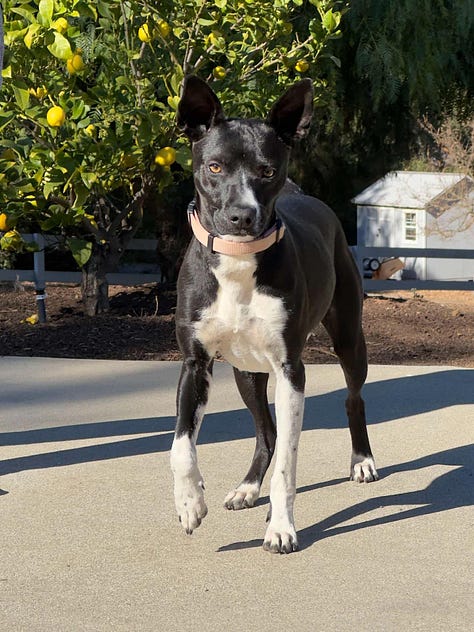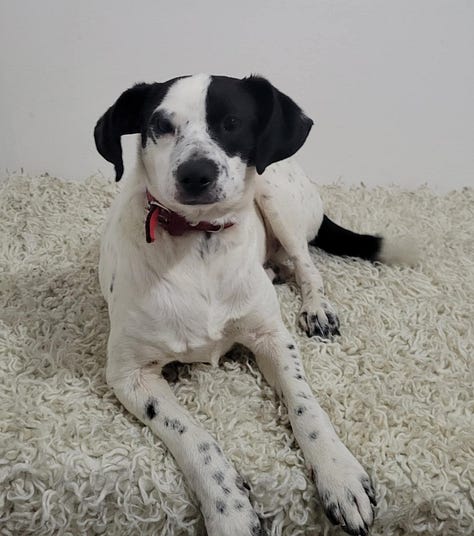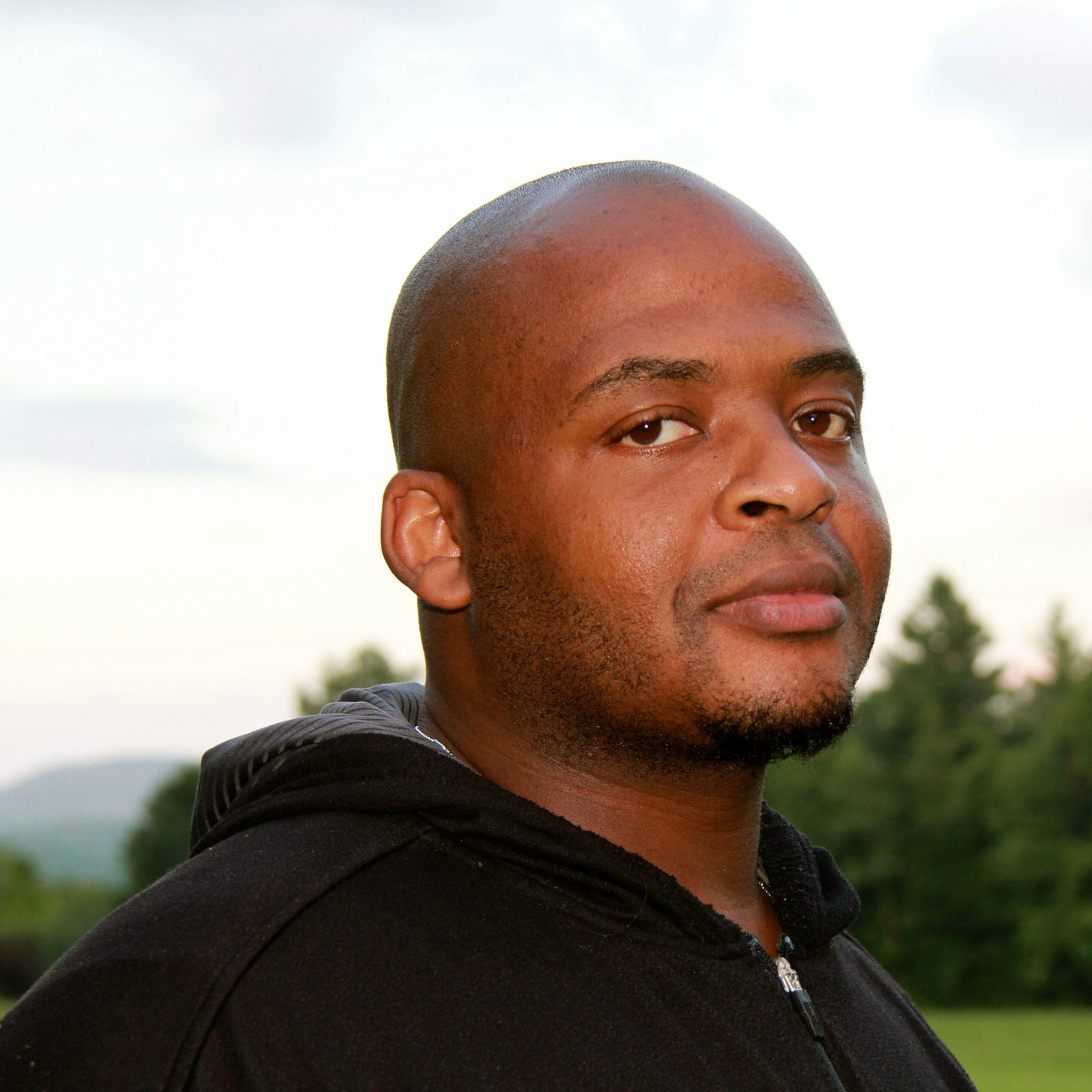Craft Advice with Kiese Laymon
On writing in your car, daily experimentation, the body as anchor, laying yourself bare, laughter, writing about rooms and wig heads, and the spiritual dimensions of the memory
Intimate conversations with our greatest heart-centered minds.
Kiese Laymon is a master storyteller and an extraordinary craftsman of the written word. The sound of his prose is hypnotic; the language simply exquisite, even when it’s rough-hewn and pushing beyond where language has been trained to go. His stories—fiction and nonfiction—are tight, focused, intimately specific. And yet gloriously universal. I find myself in everything Kiese writes and yet, on the surface, it would seem we have little in common. This is because Kiese writes from love, even when he’s addressing fury, pain, disappointment, grief, or outrage. We can all learn from his mastery.
Kiese is the author of Heavy: An American Memoir, which won the Andrew Carnegie Medal for Excellence in Nonfiction and was named one of the 100 Best Books of the 21st Century by the New York Times; Long Division, which won the 2022 NAACP Image Award for fiction; and the essay collection, How to Slowly Kill Yourself and Others in America, named a notable book of 2021 by the New York Times critics. His latest book, City Summer, Country Summer, is for children and is simply wonderful.
Kiese is the recipient of 2020-2021 Radcliffe Fellowship at Harvard. He was awarded a MacArthur Fellowship in 2022. He currently lives in Texas and teaches creative writing at Rice University.
If you missed Part One of our conversation, you can find it here.
I learned so much chatting with Kiese! Curious to hear your thoughts in the comments!
Enjoy!
Jane
❤️ Massive, ongoing gratitude to all the paid subscribers whose support for Beyond not only allows me to keep writing this newsletter, it also supports The DeTommaso Dogs. Our monthly donation helps keep these sweet doggies and some kitties off the streets, healthy, and into their forever homes. Thank you! ❤️



Where do you write?
I write a lot in my car. That started during the pandemic.
With your laptop?
Yes. I usually put the seat back a little bit and post up in a parking lot for three hours and just go at it. That’s where I’ve been writing this Good God book that I’ve been working on. I revise a lot sitting on a couch or at a desk, but in terms of generative work, I’m doing all that in my car.
I drive a lot. Driving is the thing that gives me probably the most joy that’s not people related. I know that’s terrible for the environment, but I hate flying. Riding with the wind blowing through my car, man, that’s a good feeling.
Are you ever writing while you’re driving?
Sometimes. I hook up my speakers to my computer, and then do the thing where you can listen to some computer read the shit. So much of Heavy was about sound, and so when it didn’t sound right, I’d have to stop and change it. Or if the highway was clear, I’d try to mess with it while I was driving, which is not safe for anybody, but that’s what I did.
When I first got to Poughkeepsie, my girlfriend at the time was in law school at Cornell. I would go see her every weekend; it was a three-hour drive. I was trying to write Long Division at the time. I would do the same thing, I’d have these ideas, and then I’d have my computer right there in the passenger seat, and I’d be driving and typing with one hand. So bad. So bad. So bad.
Could you record a voice memo? Or do you have to type for the words to come out right?
I’m sort of a technophobe. I should do voice memos. But I had to type. When you’re younger, you really believe all your ideas are so fresh. I was like, “If I forget this idea, the world will be without one of the greatest ideas! I’ve got to type it!”
Most of that shit didn’t see the light of day but it’s important to me.
I get it. Do you write every day?
Yes, I write every day. I’ve moved off telling my students they should write every day, because most writers now are telling students to write when they want to, and I feel that. But I write every day because I need to.
It’s not like I’m writing through big problems every day. It’s about the writerly equation. How can I make a paragraph that mimics the sound of this as opposed to a word that mimics the sound? Stuff like that. I’m just out here trying to play.
The thing I’ve been doing a lot is thinking about direct addresses. I did that direct address to my mother in Heavy, and I’m obsessed with trying to do these other kinds of direct addresses. That’s why I’m glad we’re talking about craft. Once you commit to experimentation with something, it’s easy to write every day. I’m like, “Hmm. What if I wrote this new book to Jane? How would that change everything about the book? Oh, okay, let me write a paragraph and see...” Or: “What if I wrote this to a daughter? What if I wrote this to a grandmother? What if I wrote this to a collective y’all?” — which is what I’m trying to do now
One of the commitments to craft necessitates you write every day. It doesn’t mean you write three or four hours every day. I love writing every day, trying to fuck with it and see if I can make the page do some shit, I didn’t think it could.
Do you sit down at the same time every day, or just when it fits in, or when you feel moved?
First thing I do when I wake up in the morning is grab my computer and write something. When I’m out of school, twelve to three, boom, and then before I go to bed, I see what I can do. Then the weekends I always spend fixing the shit I wrote. I never write new shit. I’m trying to see how to make a quilt of the shit I wrote during the week. That’s what I’ve been doing for thirty-five years now.
That’s amazing! Do you listen to music when you’re writing or revising?
Yes, I play it while I’m writing. But it’ll have to find me, when I’m driving across country, driving to Mississippi, driving up to New York, driving wherever. Or people send me a lot of music, and if they send me something that just lands, then I end up writing to it. I love when that happens.
Is there someone you super love right now?
I’m teaching this class on the artist Doechii. I really love a lot of what Doechii is doing with rapping and song making. She can put words together in a way to feel super fresh. But she’s also just so good at making songs.
With City Summer, Country Summer, that was a piece of art I tried to make that wasn’t outside the lines, necessarily. I don’t mean to say it was safe, it’s just in terms of the ideas and the sound, I wanted to feel every line fit. Whereas with Long Division, I was trying to write outside the margins, tear up the notion of a book. With City Summer, Country Summer and Heavy too, I was trying to write into the pocket; make it all sound good, as opposed to making it sound like a distorted version of something.
When you’re writing, does it feel like your mind is guiding you, or your heart, or you’re channeling, or all of this, or something else?
When I'm doing my best writing, I'm definitely channeling from the heart. And that heart and that head encourage me to try shit I wouldn't normally try. I wrote Heavy, maybe half of it, after losing money at a casino; that’s soulful, fucking shit. It sounds weird for me to say soulful, but you're full of soullessness, so you're full of anger, hate, despair at yourself – and you literally feel you're writing for your life now that you spent all your money.
That is a kind of writing from the body. Even when you do that, in revision, you still got to go back with your head, and you got to make sure your head and your body talk to one another to find out what you’re actually trying to do.
When you're writing, what are you experiencing in your body? Can you tell in your body when your writing is on?
Oh, yeah, yeah, yeah, I can tell. One of the things I wanted to do with Heavy, at the end of the day, when I stripped it down, I wanted every fucking sentence in this motherfucker to hit. Meaning, with every sentence, I want my body to feel like, yeah. I think I got 75% of the sentences. It’s hard to do that, to make my body feel that gasp, and for it all to fit. Because usually the shit that makes my body gasp are the sentences that distort a structure.
I’m writing this new book, and I’m trying to find the first sentence for this section. The other day the sentence came to me, and it was like, “About the Jewish people. There was a grandmother. There was a grandfather. You did not know them.” I knew in my body that that was right. Now, I just got to figure out what I can put around it to make my body keep feeling that.
Sometimes your body feels, I don't know if you feel this, Jane, that anchor, then I’m like, “Okay, I got some sort of integrity at least to this section or this paragraph.” That's what I feel about City Summer, Country Summer. Every sentence in that book has integrity. They make my body feel, it’s weird…desired. I become desirable of myself when I write hot shit. I’m like, “Okay, you’re not fucking gross. You’re alright, bro. Feel yourself a little bit.”.
I know exactly what you’re talking about! What role does intuition play in your writing?




